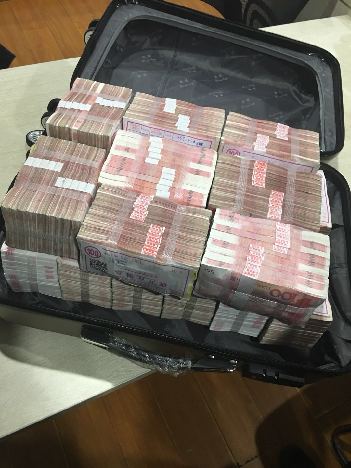(单词翻译:单击)
Earlier this month, police in the eastern Chinese city of Hangzhou responded to a call after bar staff reported finding a suspicious suitcase.
本月初,杭州市警方接到报警,有一家酒吧的工作人员称发现可疑行李箱。
It contained two million yuan in cash - an extraordinary amount of money, maybe even life-changing.
行李箱中有200万元巨额现金,或许可以改变人的一生。
They managed to track down the owner, who according to the local police, had arranged to meet with his ex-girlfriend in the bar.
警方设法找到了行李箱的主人。据当地警方称,这笔巨款的主人此前曾在酒吧与前女友见面。
The money? It was a "break-up fee".
而这笔钱是他支付的“分手费”。
Everyone knows that dating can be expensive; forking out a bit of cash to buy drinks or meals in the early stages of a relationship, or buying gifts and holidays later on.
人们都知道约会可能很费钱,早期约会时要花钱买饮料付餐费,之后还要买礼物和支付度假消费。
No longer content to just have the awkward meeting to hand each others' stuff back, break-up fees have emerged in recent years in China as a sort of compensation at the end of a long-term relationship.
分手时见面取回个人物品已经很尴尬,而现在中国的恋人们已不再满足于此。近年来中国开始出现“分手费”,作为结束长期恋情的补偿。
While not legally binding, it's a bit like one party giving their former partner a divorce settlement.
分手费并不是法律规定的,不过却有点像离婚时给前任支付协议金。
It's the person that ends the relationship that pays the fee. They decide, based on the amount of time, effort and money they have invested in the relationship, how much money they should give to their former partner.
决定分手的一方支付这笔费用。双方基于交往时间、付出的精力和金钱来决定要付费前任多少分手费。
Break-up fees are more commonly paid by men - out of guilt or in order to offset their partner's upset. However, increasingly some women see it as acceptable to pay a fee, given that it is traditionally the man who will pay for meals and gifts in a Chinese relationship.
分手费一般由男方支付,通常出于愧疚或者为了弥补对方的情感。然而,越来越多的女性也开始支付分手费,这是由于在中国谈恋爱,支付餐费和买礼物通常都是男方掏腰包。
Reports suggest that the fee can specifically helps older women who feel they have lost opportunities that they might have had in their youth to either prioritise their career or meet "the one".
有报道称,一些大龄女性分手时感到自己年轻时本可以优先考虑事业,或者遇到“合适的人”,但却错失了机会。分手费尤其可以帮助她们抚平伤痛。
In the case of the money left in the Hangzhou bar, the Global Times reported that the woman had thought it was "a few million short".
在杭州酒吧遗留巨款的这起事件中,《环球时报》报道说女方之前觉得“钱还差几百万”。
"I didn't take it, and left. I told him to get it himself. That was it," it reports her as saying.
报道称女方说:“我没拿就走了。我告诉他自己去取。就是这样。”
She didn't realise, however, that her former boyfriend had already left the bar. Both subsequently turned up at the police station hoping that they might be able to recover the money.
但她没想到,前男友已经离开了酒吧。事后两人都出现在派出所,希望拿回这笔钱。
It was returned to the man, who was told by police not to be so careless with it in the future. However, he said that he was still puzzled over whether the amount of money he had given to his ex-girlfriend was sufficient.
警察把钱还给了男方,还告诉他以后对钱别这么不小心。不过,他说他还是不知道这笔分手费够不够。
However, the man, who was in his twenties replied: "Is two million yuan a big sum?"
这位20多岁的年轻人说:“200万很多吗?”

Users of the popular Sina Weibo microblog were incredulous, with one commenting: "Two million can buy you a decent house in Hangzhou."
新浪微博的用户们感到难以置信。有人评论说:“200万足够在杭州买套不错的房子了。”
"Why do you need money in order to leave?" one user asked, and another questioned the woman's will to be independent. "How must this woman regard herself? As a product or a plaything of men?"
有人问道:“拿钱才肯离开?”还有人质疑这位女性不想自立:“她把自己当什么了?一件商品还是男性的玩物?
Users noted the pressure that such fees put on Chinese men. "Why is it that men must always give women money and goods? Are men and women unequal?" one user asked.
微博用户们提到了这种分手费给中国男性带来的压力。有人问道:“为什么男性必须总是给女性钱,给她们买东西?男女不是平等的吗?”
It also called some to question the connection between money and love, and to ask whether such customs put added pressure on China's poor to find a partner.
还有人质疑金钱和爱情的关系,这种传统会不会给囊中羞涩的男性找对象增加压力。


